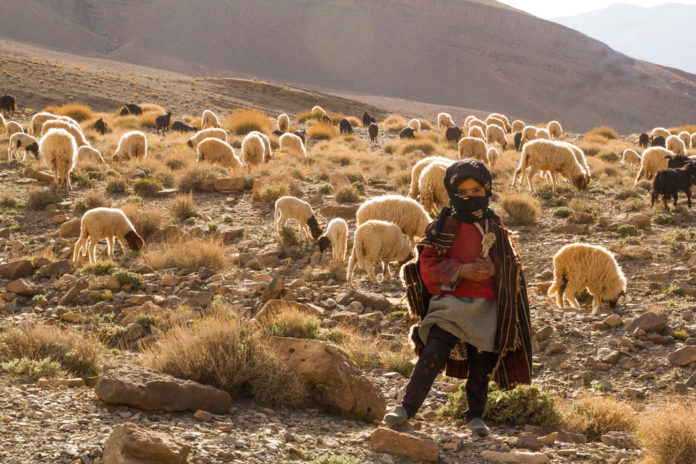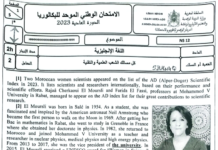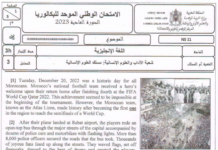The exam’s Comprehension Text
[1] As men try to find work in big cities in Morocco, women in the countryside are traditionally destined to do the hard work. Every day after lunch, the women of Tizi Oussem (a village in the heart of the High Atlas Mountains) work in the fields, herd the sheep, do the washing by the river and gather wood for the fire. Even before that, they work for half a day doing housework and taking care of the children. At the end of the day, they gather the wood or crops into bundles which they carry on their shoulders back to the village. Then they start preparing dinner and doing their chores for the evening.
[2] “It’s a tough life, but it is what it is,” says Yamna, a woman from the village. Like all the old women who never attended school, she can’t read or write, and she doesn’t really know how old she is. “This is the life of the mountains. It’s not that good, but we don’t really have a choice. Why don’t men carry the heavy burden? I’m not sure, but most of them just don’t.”
[3] Malika, a 16-year-old girl, dropped out of school before she could graduate because of health problems. But that is only part of the reason why she quitted school. She also has to work and take care of her siblings. Every day she gets up at 6 a.m. to prepare breakfast, and then goes down to the valley to work in the fields or do the laundry. In her free time, she weaves beautiful and colourful carpets. “I regret now that I’ve left school,” she says. “I wish I had continued to become a preschool teacher to help children in the village.”
[4] Lahcen, 52, is one of the key figures who has multiple responsibilities in the village. He has to call an emergency when someone is in danger, when a woman has to give birth or when the roads are blocked in winter. He also settles disputes and makes sure other villagers help when a family is in need. He admits that life can be difficult in the valley, especially for women. “They carry heavy loads here. It is our tradition. Some people think it’s bad for a man’s reputation to do a woman’s work. That’s why many men leave their wives and children behind to find jobs in big cities. They usually don’t make enough money,” says Lahcen. “They work for about 70 dirhams a day, but the cost of living in the city is higher. The families here don’t really profit from them, and neither does the village. It would be better if they stayed here to make it a better place,” he adds.
Adapted from www.middleasteye.net
National exam | Arts Stream | Ordinary Session 2016 with Answers





